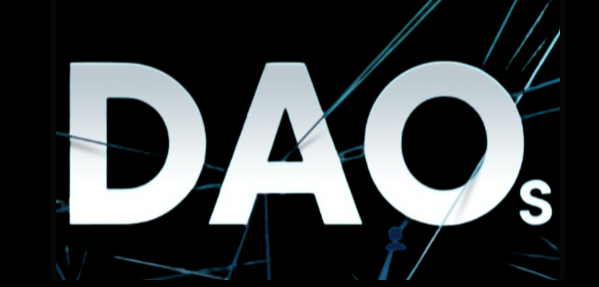
Are you a cryptocurrency enthusiast looking to understand what a Decentralised Autonomous Organisation (DAO) is? If so, you’ve come to the right place. In this post, we’ll discuss what a DAO is, how it works, and how it could revolutionise the way businesses are run. So let’s dive in!
What is a DAO?
A DAO is a type of organisation that is decentralised, meaning it exists without a central authority or governing body. Instead, it is comprised of a network of individual participants who make decisions and take actions autonomously. These participants are incentivised to act in the best interest of the organisation through the use of smart contracts and token rewards.
Unlike traditional organisations, a DAO is not bound by geographical or political borders. It can be used to manage a variety of different operations, from finance and investments to product development and marketing.
How Does a DAO Work?
A DAO is powered by blockchain technology, which allows it to operate autonomously. This means that all decisions are made by the participants within the DAO and not by any centralised authority. The decisions are made through a consensus-based voting system where participants cast their votes on various issues related to the organisation.
The decisions are then written into a smart contract, which is a computer program that executes a predetermined set of instructions. This ensures that all participants are held accountable for their decisions and that the organisation is managed in a transparent and secure manner.
What are the Benefits of a DAO?
The main benefit of a DAO is that it eliminates the need for a centralised authority. This makes it more efficient and cost-effective as there is no need to pay for administrative costs or legal fees associated with traditional organisations. In addition, since all decisions are made in a transparent and secure manner, there is a heightened level of trust between participants.
DAOs also offer greater flexibility and scalability than traditional organisations. This allows organisations to quickly adapt to changing market conditions and remain agile in an ever-evolving digital landscape.
What are the Risks of a DAO?
Although DAOs offer many benefits, there are also some risks associated with them. One of the main risks is that of security. Since the organisation is decentralised and operates without a centralised authority, it is vulnerable to attacks from hackers. Additionally, since all decisions are made by consensus, it is possible for a minority of participants to sway the decision-making process and put the organisation in a vulnerable position.
Finally, since the organisation is not bound by geographical or political borders, it is vulnerable to changes in the legal and regulatory landscape. As such, it is important to keep up-to-date with the latest developments in order to ensure that the organisation is compliant with the applicable laws and regulations.
Conclusion
In conclusion, a Decentralised Autonomous Organisation (DAO) is a type of organisation that is decentralised and operates without a centralised authority. It is powered by blockchain technology and is managed in a transparent and secure manner through the use of smart contracts and token rewards. Benefits of a DAO include greater efficiency, cost-effectiveness, flexibility, and scalability. However, there are also some risks associated with a DAO, such as security and legal/regulatory compliance.
We hope this post has helped to explain what a DAO is and how it works. If you’d like to learn more about this fascinating topic, please check out our other articles on cryptocurrency and blockchain technology.


